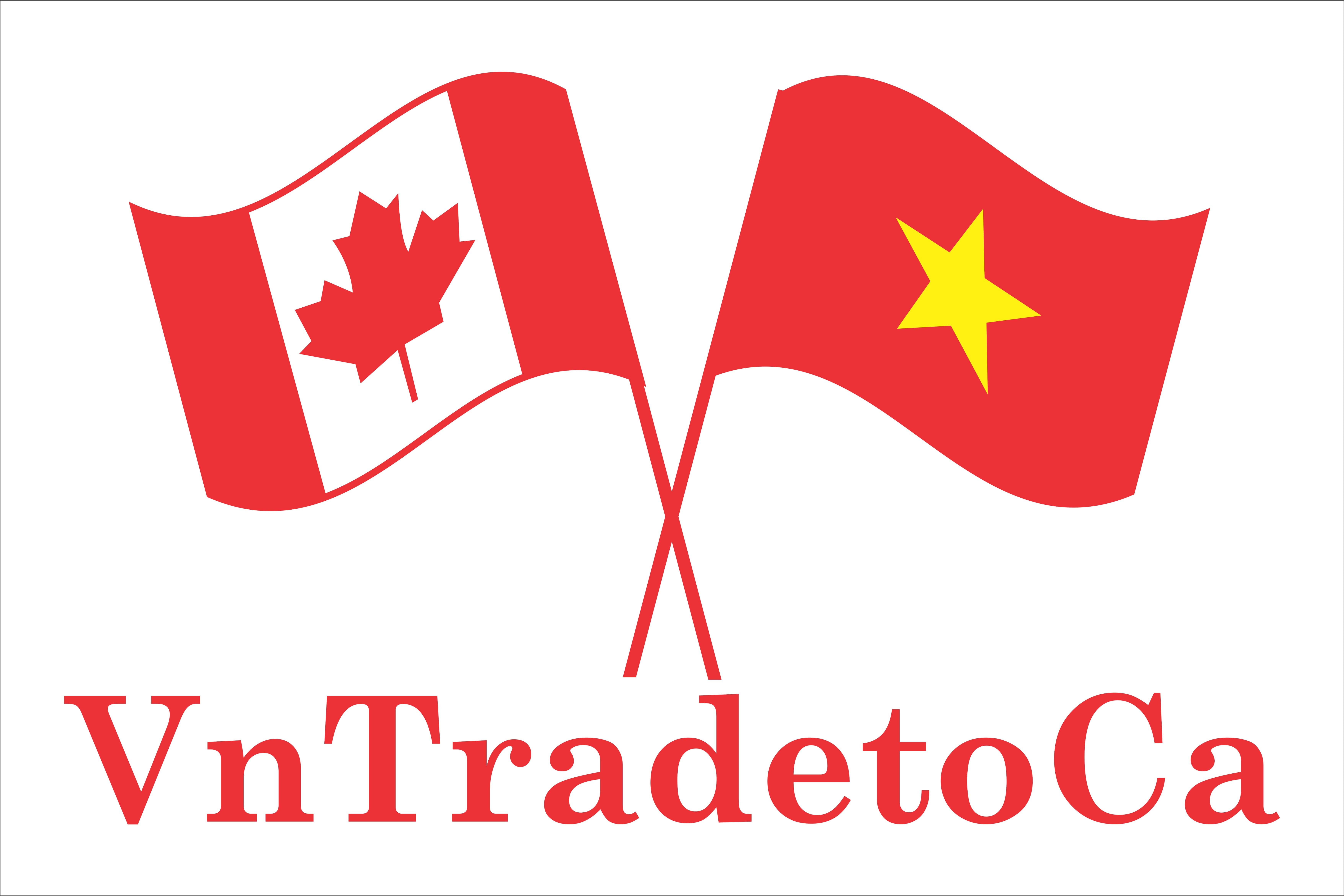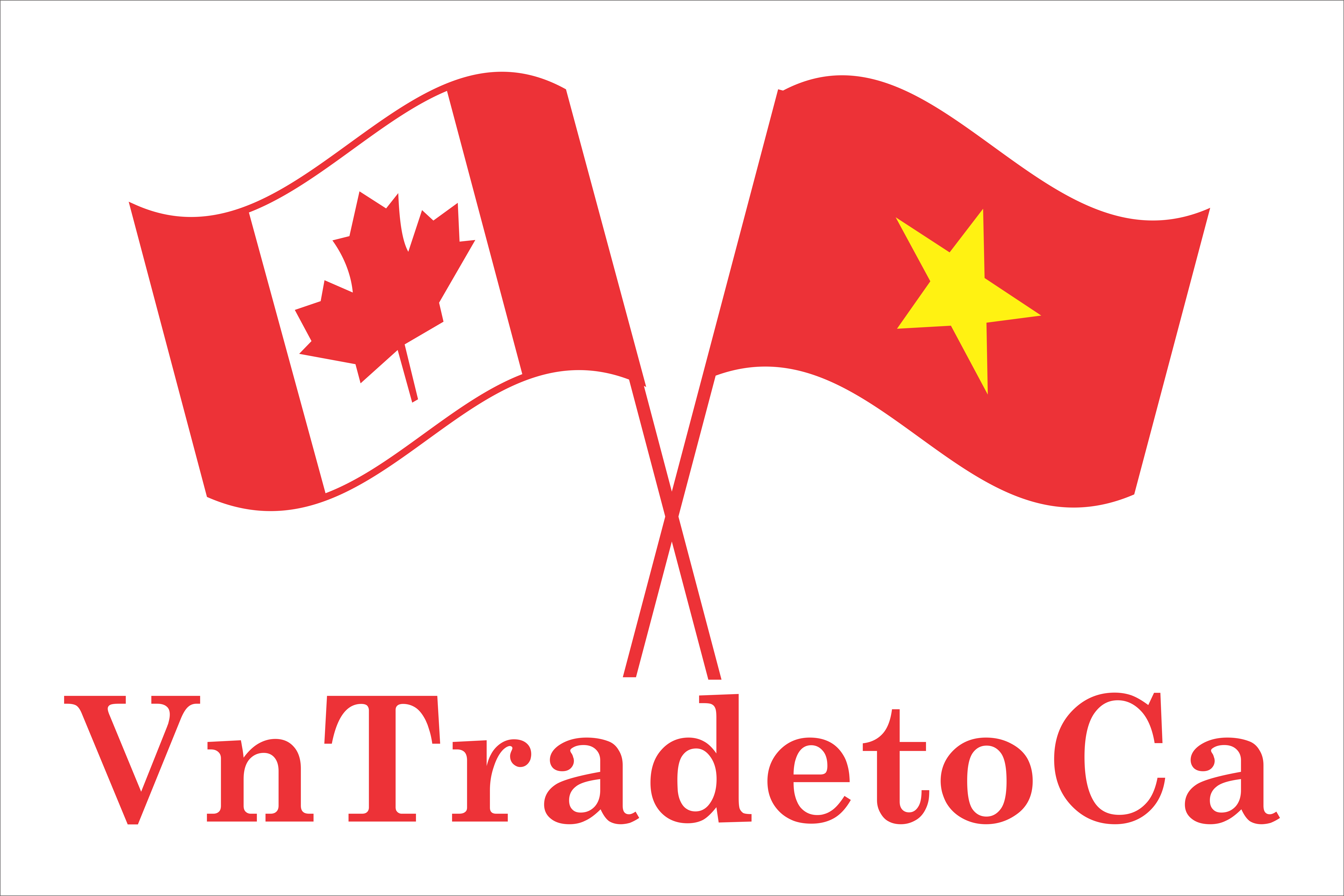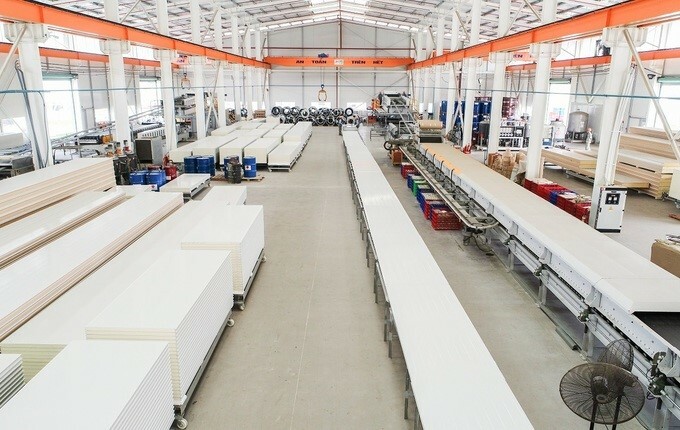Offshoots of industrial real estate development in Vietnam, particularly cold storage facilities and factories, have boosted demand for smart, eco-friendly materials.
While most industries have been affected by the Covid-19 pandemic, both production lines at the Pisocy fireproof panel factory of Phuong Nam Soundproofing Insulating Co. are still running.
Workers are fully equipped and protected with hats and masks. Hand sanitizer bottles are available in every corner of the factory.
Every morning, cold rolled steel sheets are put into both production lines. The following processing stages, like placing corrugated iron materials into the molds, injecting PIR foam and the cutting of panels to specifications are completely automated. Both lines have the capacity to produce thousands of square meters of panels per day. All the panels have two sides made of stainless or corrugated steel. Their inner layers include heat-insulating and fireproof layers with balanced thickness and high stiffness.
After beginning at around 20 percent of the capacity, the factory has, six months later, reached 50 percent of its designed capacity per day. In fact, there are times when the two lines have functioned at 80 percent of maximum capacity to meet clients’ demands just in Vietnam.
Most orders from the beginning of 2020 are from industrial business clients, using the panels to build factories, warehouses, clean rooms and cold storage facilities.
In fact, part of the reason why Vietnam’s materials production business is still running well amid the coronavirus pandemic is high demand in industrial real estate sector.
A report by real estate service company Jones Lang Lasalle shows that the sector has performed well, with rental rates remaining high in the first quarter. The report says that since the wave of relocating assembling from China to Vietnam appeared a few years ago, Vietnam’s industrial real estate has remained a promising market. With well-developed infrastructure and proximity to China, Vietnam in general and the northern region in particular have attracted more and more big companies who want to diversify their production portfolio beyond their facilities in the neighboring giant.
At the end of Q1, northern industrial parks had an average occupancy of 72 percent, with Bac Ninh and Hai Phong leading the pack with large supply of such spaces. However, the shift (from China to elsewhere) will partly be affected by disruptions in the global supply chain.
The Covid-19 outbreak has imposed restrictions and barriers in both domestic and foreign trade. JLL expects investments and transactions to be delayed. Reduced activities at major ports and airports will also reduce asset performance.
On the other hand, the pandemic could also accelerate application of automation and robotics in industries. With consumers preferring online shopping, the demand for advanced logistics will be boosted. JLL expects the industrial real estate market to recover fully once the coronavirus threat is gone.
In its latest forecast, real estate consultancy CBRE also says that niche markets in industrial real estate and logistics will benefit in the long term, as increased consumption of fresh foods increases demand for cold storage systems.
Besides, the US-China trade war has caused many manufacturing companies around the world to diversify their supply chains to other Asian countries like Vietnam, Thailand, Indonesia, India and Bangladesh.
A CBRE report says the virus outbreak and its effects on global supply chains will continue to drive this trend in the long term, especially as companies try to minimize their dependence on China.
 |
|
A warehouse built from insulating panel materials in Tan Phu Trung Industrial Park, Ho Chi Minh City. Photo by Quynh Tran. |
In addition, automation in logistics is expected to increase as suppliers seek solutions to reduce their reliance on human resources and prevent disruptions. In the long term, automation and robotics will significantly change the operations of distribution centers and warehouses.
Giap Van Thanh, General Director of Phuong Nam Soundproofing Insulating Co., said that 80 percent of the company’s clients are currently enterprises that own factories and warehouses with great demand for expansion and renovation.
He said the demand for industrial real estate is expected to remain stable in the second quarter. Should Covid-19 be well-controlled by the end of June, industrial construction activities will continue strongly, Thanh said. “There will be a push for materials production in general and green materials in particular then.”
He stressed that in such a scenario, green and hi-tech materials will prove more efficient, helping builders significantly shorten construction time. At present, a 25,000 square meter factory can be built in less than three months, from designing to building and putting it into operation. The shortened construction time also contributes to reduced labor costs and power consumption, while the buildings have a longer lifespan.
These are essential factors that can yield quick investment returns for warehouses, cold storage and food storage facilities.
Currently, Phuong Nam’s main product line, the Pisocy panel, replaces traditional materials with a high insulation coefficient, ensuring deep cold storage up to minus 50 degrees Celsius, preventing heat loss when installed.
Pisocy panels also meet fire protection standards of level B2, EI ~ 60 of the Fire Department with the ability to withstand heat of 300 degrees Celsius for up to 180 minutes, Thanh said.
However, he also noted that winning the heart of clients remains a challenging task. Their requirements are getting more and more stringent, and, furthermore, the epidemic has posed financing challenges, he said.
 |
|
Giap Van Thanh, general director of Phuong Nam Co. Photo by Quynh Tran. |
Sustained trend
Clients in various industries are selecting green materials in general and insulation panels in particular. The cost of green materials has gradually reduced because of active domestic production. Made-in-Vietnam green and high-tech materials help builders reduce their dependency on imports from developed countries which are invariably more expensive.
Thanh said he has seen many builders importing panels at very high costs. This prompted him to spend several years in Europe researching and experimenting in order to bring suitable solutions to Vietnam. Currently, Phuong Nam can produce panels of “the same quality as advanced countries at much lower prices.”
“In the near future, we will look for foreign distributors to expand our international market, especially large industrial constructors in developed countries,” he added.
By Anh Dung







